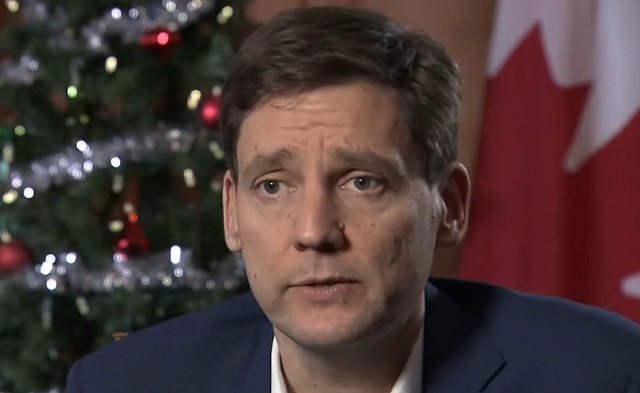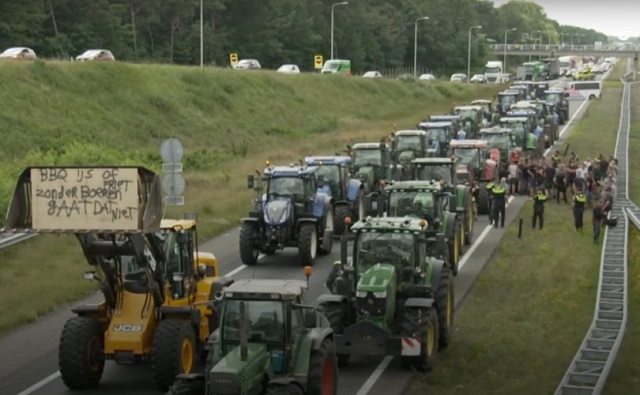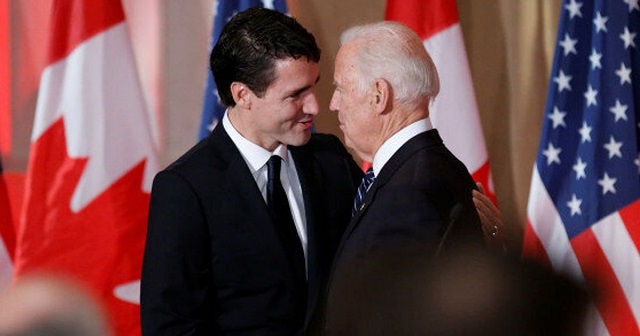Crime
Yesterday my sister was brutally assaulted by two women

This is posted with permission from Nicole Safron. Her sister survived a terrifying experience at their home near Sylvan Lake this week.
Following Nicole’s post is the RCMP report to the media on the alleged crime(s)
Yesterday my sister was brutally assaulted by two women
These women had been dropped off in front of her garage with a blue bag by a green ford truck. My sister who was upstairs in her home with her daughter and newborn baby looked out the window to see the girls jump out of the vehicle and the truck take off through her fence across the canola field.
She immediately called her husband and then a neighbor who is about a mile and a half away who could be there as soon as possible. JUST a week prior to this, a man walked into her home in broad daylight asking where Evergreen hall was, and later arrested (and is known to police) so she was taking it seriously. She got off the phone with her husband who called 911 for her at 8:44 am to dispatch police to her. She then activated her alarm system which has a loud outdoor siren to hopefully scare them away. The pair fled on foot towards the road. My sister, left her kids upstairs in the house (thankfully) locked the house and followed the girls to the end of the driveway in her car, while on the phone with my dad, to ensure she knew where the girls were. The neighbor got there at the same time and the girls were laying in the grass with the blue bag.
Meanwhile the green truck was speeding across the fields towards my other sisters home going through the fences. So the neighbor decided it would be good to make sure she was ok as well. She was still on the phone with my dad in her SUV when the girls attacked her punching her in the face and ripping her out of her vehicle. with my dad helpless on the other line.
The girls were kicking and punching her and telling her they were going to shoot her in the face. My sister was pleading for her life telling them she has a newborn baby and children and to take her car. My sister was fighting for her life in a ditch in rural Alberta wile my dad listened on the phone knowing anything could happen to his daughter.
The girls then got into my sisters vehicle and tore off towards highway 11, erratically driving down the wrong side of the highway at 160 km/hr + into oncoming traffic.
Meanwhile the truck that had crashed through the fences had caught fire behind my other sisters home after driving about 3/4 of a mile through fences and crop. The men in the truck had fled on foot. One of them stealing a vehicle from the neighbors down the road.
It was not until aprox 9:37am when the first police showed up out there.
My sister who was attacked did not see an officer until after 10:00am.
The reason I am writing this out in detail is to bring awareness to the crisis that we are facing in central Alberta with crime and drug related issues and thefts. Rurally it takes oficers time to get to victims. There are no other houses and rarely are others home. It is a hopeless feeling and people are scared to be home.
This is beyond petty theft. This is peoples lives and families at risk. You better believe what both my sister and my dad experienced yesterday will stick with them for years to come.
There is a meeting on Thursday November 7th from 6pm to 8pm in Rocky mountain house at the Lou Soppit centre with Doug Schweitzer, the minister of justice. I would encourage anyone who can to attend, in addition to writing a letter to your MLA. Honorable Jason Nixon has been outstanding with this situation contacting the family shortly after the events to discuss.
Lets send him the tools he needs to make a change. We need these drug houses wiped out. In ALL of ALBERTA. Central and rural Alberta is getting scary. These people need to be locked up. Both of these women had been arrested before and are known to police. They get released in a few days and have nothing to loose. I feel sorry for our police forces when they try and help us and the criminals are released within days!
They are dangerous.
I know I am speculating / putting the puzzle pieces together, however, those women had the intent of an armed robbery at my sisters home that morning. Armed and planned. Perhaps another vehicle would come and pick them up or they would meet the ford in the field.
But what I do know is that I am thankful Jolene was able to keep them away from her home, and her children did not have to witness anything.
You better believe they would have got into her home in the hour it took police to arrive. Or that our neighbor or my father would be in the wrong for trying to protect her.
And it may have been a different story entirely.
- Truck left by intruders
- Fence ruined as intruders excaped
- Guns recovered by police
From Sylvan Lake RCMP:
The RCMP have laid charges against two females following several incidents that began with a complaint of suspicious females in Sylvan Lake and finished with a collision in Red Deer.
On October 23 at 8:48 a.m., Sylvan Lake RCMP responded to a rural complaint, that two females, believed to be intoxicated, were in a ditch. They were allegedly dropped off by a male driving a truck and that truck had driven through a fence. Property representatives in the area were taking steps to identify and detain the females. The truck, later identified as a 1997 Ford F150, was abandoned in a nearby field, on fire. Eckville Fire department attended and assisted with extinguishing the vehicle fire.
Sylvan Lake RCMP received a further update that one female property representative had been assaulted and had her vehicle, a Dodge Durango, stolen. RCMP Police dog services, Rocky Mountain House RCMP, and RCMP air services were deployed to the location to assist.
A short time later the Dodge Durango was observed travelling at a high rate of speed eastbound on Highway 11. The vehicle entered Red Deer. (see background media release).
Sylvan Lake RCMP later recovered the Ford F150, which had been stolen out of the Rocky Mountain house area. Two prohibited firearms were located, abandoned, in the area.
A second vehicle, a 2007 grey Chevrolet Silverado was stolen from a nearby residence and remains outstanding. The RCMP believe that the male who dropped off the suspect females stole the Silverado from an area property.
Sylvan Lake RCMP have charged Chelsea Crowley (27) and Brianna Crookedlegs (20) with the following offences:
– 2 counts of Possession of a Prohibited Weapon
– 2 counts of Possession of a weapon for a Dangerous Purpose
– 2 counts of Possession of Weapon without holding a licence
– 2 counts of Possession of a Prohibited or Restricted Firearm
– 1 count of Robbery
Crowley faces an additional five counts of Breach of Recognizance. Both females are scheduled for a Judicial Interim Release hearing on October 28.
Investigation into the circumstances of the recovered Ford F150 and the theft of the 2007 grey Chevrolet Silverado continues. The Silverado is described as grey, with black rims, a small push bar on the front and small dents.
If you have any information about these incidents, or information on the location of the stolen Chevrolet Silverado please contact the Sylvan Lake RCMP at 403-858-7200. If you wish to remain anonymous, you can contact Crime Stoppers at 1-800-222-8477 (TIPS), online at www.P3Tips.com or by using the “P3 Tips” app available through the Apple App or Google Play Store.
Addictions
Why can’t we just say no?

From the Frontier Centre for Public Policy
Drug use and violence have become common place in hospitals. Drug-addicted patients openly smoke meth and fentanyl, and inject heroin. Dealers traffic illicit drugs. Nurses are harassed, forced to work amidst the toxic fumes from drugs and can’t confiscate weapons. In short, according to one nurse, “We’ve absolutely lost control.”
“Defining deviancy down” is a cultural philosophy that emerged in the United States during the 1990s.
It refers to society’s tendency to adjust its standards of deviancy “down,” so that behaviours which were once unacceptable become acceptable. Over time, this newly- acceptable behaviour can even become society’s norm.
Of course, the converse must also be true — society looks down on those who label social behaviours “wrong,” deeming them moralistic, judgemental or simply out of touch with the realities of modern life.
Thirty years later, this philosophy is entrenched in British Columbia politics and policies. The province has become a society that cannot say “no” to harmful or wrong behaviours related to drug use. It doesn’t matter if you view drug use as a medical issue, a law-and-order issue, or both – we have lost the ability to simply say “no” to harmful or wrong behaviour.
That much has become abundantly clear over the past two weeks as evidence mounts that BC’s experiment with decriminalization and safe supply of hard drugs is only making things worse.
A recently-leaked memo from BC’s Northern Health Authority shows the deleterious impact these measures have had on BC’s hospitals.
The memo instructs staff at the region’s hospitals to tolerate and not intervene with illegal drug use by patients. Apparently, staff should not be taking away any drugs or personal items like a knife or other weapons under four inches long. Staff cannot restrict visitors even if they are openly bringing illicit drugs into the hospital and conducting their drug transactions in the hallways.
The public was quite rightly outraged at the news and BC’s Health Minister Adrian Dix quickly attempted to contain the mess by saying that the memo was outdated and poorly worded.
But his facile excuses were quickly exposed by publication of the very clearly worded memo and by nurses from across the province who came forward to tell their stories of what is really happening in our hospitals.
The President of the BC Nurses Union, Adriane Gear, said the issue was “widespread” and “of significant magnitude.” She commented that the problems in hospitals spiked once the province decriminalized drugs. In a telling quote, she said, “Before there would be behaviours that just wouldn’t be tolerated, whereas now, because of decriminalization, it is being tolerated.”
Other nurses said the problem wasn’t limited to the Northern Health Authority. They came forward (both anonymously and openly) to say that drug use and violence have become common place in hospitals. Drug-addicted patients openly smoke meth and fentanyl, and inject heroin. Dealers traffic illicit drugs. Nurses are harassed, forced to work amidst the toxic fumes from drugs and can’t confiscate weapons. In short, according to one nurse, “We’ve absolutely lost control.”
People think that drug policies have no impact on those outside of drug circles – but what about those who have to share a room with a drug-smoking patient?
No wonder healthcare workers are demoralized and leaving in droves. Maybe it isn’t just related to the chaos of Covid.
The shibboleth of decriminalization faced further damage when Fiona Wilson, the deputy chief of Vancouver’s Police Department, testified before a federal Parliamentary committee to say that the policy has been a failure. There have been more negative impacts than positive, and no decreases in overdose deaths or the overdose rate. (If such data emerged from any other healthcare experiment, it would immediately be shut down).
Wison also confirmed that safe supply drugs are being re-directed to illegal markets and now account for 50% of safe supply drugs that are seized. Her words echoed those of BC’s nurses when she told the committee that the police, “have absolutely no authority to address the problem of drug use.”
Once Premier David Eby and Health Minister Adrian Dix stopped denying that drug use was occurring in hospitals, they continued their laissez-faire approach to illegal drugs with a plan to create “safe consumption sites” at hospitals. When that lacked public appeal, Mr. Dix said the province would establish a task force to study the issue.
What exactly needs to be studied?
The NDP government appears to be uninformed, at best, and dishonest, at worst. It has backed itself into a corner and is now taking frantic and even ludicrous steps to legitimize its experimental policy of decriminalization. The realities that show it is not working and is creating harm towards others and toward institutions that should be a haven for healing.
How quickly we have become a society that lacks the moral will – and the moral credibility – to just to say “no.”
Susan Martinuk is a Senior Fellow with the Frontier Centre for Public Policy and author of Patients at Risk: Exposing Canada’s Health-care Crisis.
Addictions
British Columbia to re-criminalize hard drug use in public after massive policy failure

From LifeSiteNews
British Columbia premier David Eby announced that his province plans to re-criminalize hard drug use in public spaces after its decriminalization last year led to widespread social disorder.
British Columbia is asking the Trudeau government to roll back its drug decriminalization program after increased violence and continued overdoses.
On April 26, New Democratic Party (NDP) premier of British Columbia David Eby announced that he is working with Prime Minster Justin Trudeau’s federal government to re-criminalize drug use in public spaces, including inside hospitals, on transit, and in parks. British Columbia, under permission from the Trudeau government, had decriminalized such behavior in 2023.
“Keeping people safe is our highest priority,” Eby explained in a press release. “While we are caring and compassionate for those struggling with addiction, we do not accept street disorder that makes communities feel unsafe.”
“We’re taking action to make sure police have the tools they need to ensure safe and comfortable communities for everyone as we expand treatment options so people can stay alive and get better,” he continued.
Under the new regulations, police would be given the power to prevent drug use in all public places, including hospitals, restaurants, transit, parks and beaches.
However, drug use would remain legal at “a private residence or place where someone is legally sheltering, or at overdose prevention sites and drug checking locations.”
Eby’s concerns over drug use were echoed by Minister of Public Safety and Solicitor General Mike Farnworth who said, “Our communities are facing big challenges. People are dying from deadly street drugs, and we see the issues with public use and disorder on our streets.”
“As we continue to go after the gangs and organized criminals who are making and trafficking toxic drugs, we’re taking action now to make it illegal to use drugs in public spaces, and to expand access to treatment to help people who need it most,” he promised.
Beginning in early 2023, Trudeau’s federal policy, in effect, decriminalized hard drugs on a trial-run basis in British Columbia.
Under the policy, the federal government began allowing people within the province to possess up to 2.5 grams of hard drugs without criminal penalty, but selling drugs remained a crime.
While British Columbia has not yet indicated it plans to re-criminalize possession, its decision to clamp down on public drug use presents a major departure from its previous tactics of continually liberalizing its attitude toward narcotic use.
Since being implemented, the province’s drug policy has been widely criticized, especially after it was found that the province broke three different drug-related overdose records in the first month the new law was in effect.
The effects of decriminalizing hard drugs in various parts of Canada has been exposed in Aaron Gunn’s recent documentary, Canada is Dying, and in U.K. Telegraph journalist Steven Edginton’s mini-documentary, Canada’s Woke Nightmare: A Warning to the West.
Gunn says he documents the “general societal chaos and explosion of drug use in every major Canadian city.”
“Overdose deaths are up 1,000 percent in the last 10 years,” he said in his film, adding that “[e]very day in Vancouver four people are randomly attacked.”
-

 Business4 hours ago
Business4 hours agoUN plastics plans are unscientific and unrealistic
-

 Brownstone Institute7 hours ago
Brownstone Institute7 hours agoThe Teams Are Set for World War III
-

 Education1 hour ago
Education1 hour agoSupport a young reader through the Tim Hortons Smile Cookie campaign
-

 Opinion5 hours ago
Opinion5 hours agoThe Climate-Alarmist Movement Has A Big PR Problem On Its Hands
-

 Addictions6 hours ago
Addictions6 hours agoWhy can’t we just say no?
-

 Opinion2 days ago
Opinion2 days agoClimate Murder? Media Picks Up Novel Legal Theory Suggesting Big Oil Is Homicidal
-

 Energy1 day ago
Energy1 day agoNet Zero’s days are numbered? Why Europeans are souring on the climate agenda
-

 Bruce Dowbiggin2 days ago
Bruce Dowbiggin2 days agoIt Gets Late Early These Days: Time To Bounce Biden & Trudeau?






